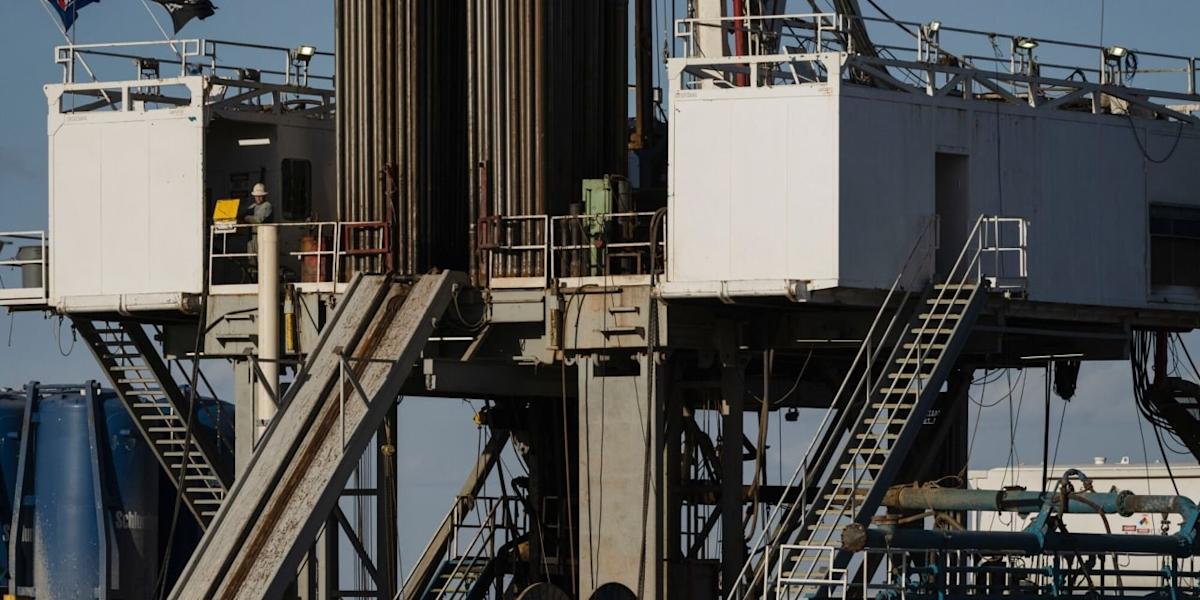Oil drilling rig in the Permian Basin. – Justin Hamel/Bloomberg News
The oil-and-gas industry uncorked the champagne after Donald Trump won the election. Now, it’s debating whether the glass is half full or half empty.
Some companies are asking the administration not to lay off key personnel who deliver permits at federal agencies, including the Interior Department, which has already fired hundreds of workers. President Trump’s steel tariffs are set to raise drilling expenses for shale companies. And perhaps most important, oil bosses have to contend with the administration’s focus on lowering crude prices to industry-busting levels.
The Organization of the Petroleum Exporting Countries, which Trump asked to pump more oil, announced earlier this month that it would start increasing production. U.S. crude prices have fallen about 6% in the past month to around $68 a barrel. Companies would likely slow drilling if prices were to fall below $60.
Trump’s whirlwind policy moves have elicited some head-scratching among business leaders. They have been especially jarring for the oil-and-gas industry, which gave tens of millions of dollars to Trump’s 2024 campaign as he pledged to make fossil fuels a centerpiece of his agenda. Oil billionaires encouraged him to dismantle environmental rules and help them build new pipelines.
Energy executives at a major Houston energy conference last week hailed Trump’s flurry of executive actions, which aim to support the production and export of fossil fuels. But even those enthused about his moves said their industry is entering turbulent times.
“I think the tailwinds are going to be a little gusty for a while, and a little volatile,” Alan Armstrong, chief executive of pipeline company Williams, said in an interview on the sidelines of CERAWeek by S&P Global.
The chief executives of U.S. oil giants Exxon Mobil, Chevron, ConocoPhillips, Hess and others met with Trump on Wednesday at the White House largely to discuss reforms to the country’s complex permitting processes. After the meeting, Interior Secretary Doug Burgum said the executives didn’t discuss oil prices with the president.
A major concern for energy executives is the Trump administration’s axing of federal workers. Their companies receive permits to drill on U.S. lands from Interior’s Bureau of Land Management, licenses to export liquefied natural gas from the Energy Department, and permits to build interstate natural gas pipelines from the Federal Energy Regulatory Commission.
